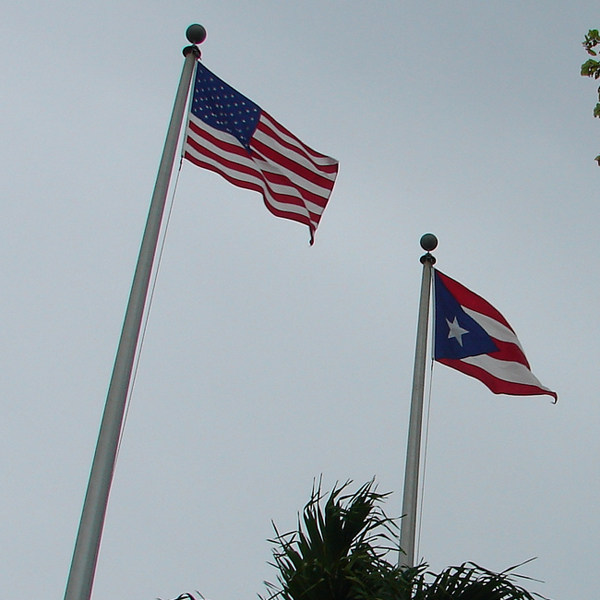There was a bit of a buzz last week about the passage of a House bill that seemed to pave the way for Puerto Rico to possibly set out on the road to statehood — or even independence.
But don’t expect that to happen anytime soon.
The bill was received by the Senate and referred to the Committee on Energy and Natural Resources. That committee is scheduled to discuss the bill on May 19.
But a Democratic Senate aide suggested to TPM Monday that the full Senate won’t take up the bill anytime soon, noting that it has no Senate sponsor, hasn’t been reported out of committee and would likely face a GOP filibuster anyway.
Even if the Senate did somehow take up and pass the Puerto Rico bill — and if President Obama signed it into law — there’d still be a long way to go.
Puerto Rican voters — both those living in Puerto Rico and those born in Puerto Rico who now live in the U.S. — would vote on whether to keep Puerto Rico’s current status or change it.
If a majority voted to change Puerto Rico’s status, a second vote would be held to decide if Puerto Rico would become a state, declare its independence, keep its current status or become a sovereignty associated with the U.S.
And even if a majority of Puerto Rican voters wanted their island to become the 51st state, they’d still need Congressional approval. The Puerto Rican votes are merely recommendations — a statement of preference to Congress. There’s no guarantee that Congress would honor the request for statehood.
Rep. Pedro Pierluisi (D-Puerto Rico) tells TPM that the bill passed by the House “does not bind the federal government to take any action once it has received the plebiscite results. Rather, the bill simply provides that the results will be certified to Congress and the President. If a majority votes for a different status in the initial plebiscite, and then for one of the three alternatives in the second plebiscite, then it is Congress that would determine any next steps.”
New states are admitted into the Union by Acts of Congress. A strong majority vote for statehood in the bill’s second plebiscite could motivate any member of Congress to introduce and pass legislation to set the statehood process in motion. In all likelihood, that bill would provide for a transition period in which all federal spending and tax program would be phased in on the Island.
We’re not holding our breath.
Puerto Rico became a U.S. territory after the Spanish-American War, and people born there are U.S. citizens. The island became a commonwealth in 1952.
Puerto Ricans serve in the U.S. military but don’t vote in presidential elections. They don’t pay federal income taxes.
Although the prospects for statehood don’t seem particularly good — or imminent — several prominent Puerto Rican politicians are pushing for statehood — or something else.
“I believe it behooves us to finish this process that commenced when we became part of the nation in 1898, and be able to fully participate in the decisions that are made every day on the 4 million American citizens residing in Puerto Rico — or allow us to take a different route and just have our own government,” said Luis Fortuño, the Republican governor of Puerto Rico, in an interview with CNSNews.com.
“Now we feel like we live in the outhouse,” he said. “We wanna live inside. Or else, move on.”
Watch:









